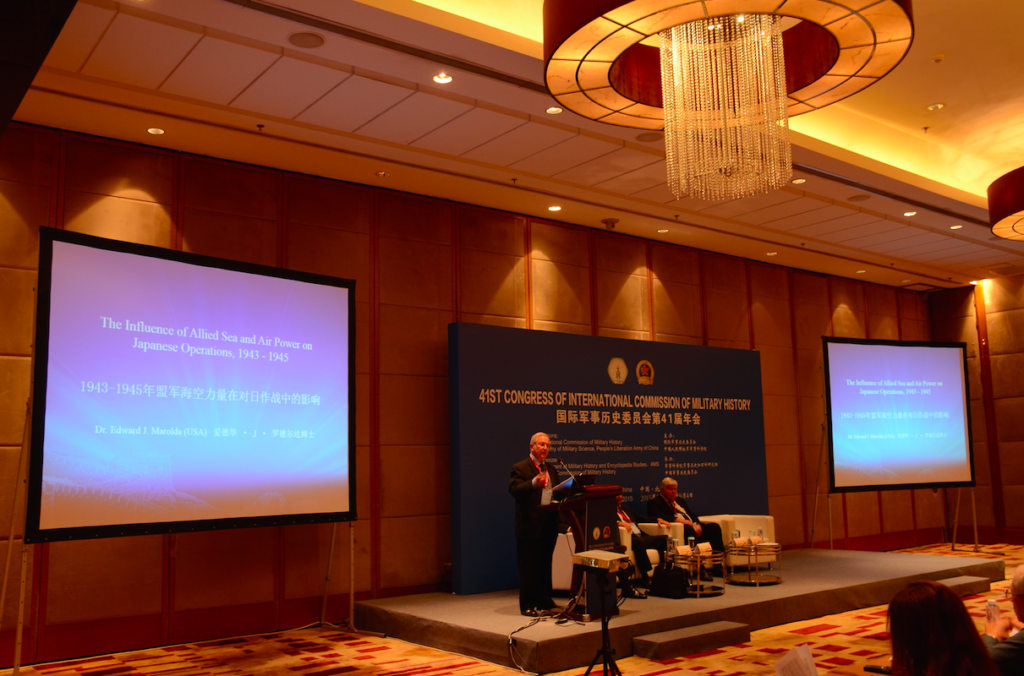
Dr. Marolda speaking at ICMH Conference in Beijing, China
Dr. Edward J. Marolda, a life member of the Naval Historical Foundation, participated in the annual Congress of the International Commission of Military History (ICMH) held in Beijing, China, during the first week of September. The theme of the conference, hosted by the Chinese Commission of Military History, was World War II and the Development of Warfare in the 20th Century. In keeping with that theme, Dr. Marolda presented a paper entitled “The Influence of Allied Air and Sea Power on Japanese Operations, 1944-1945.” The essay focused on Allied submarine, mining, and land- and sea-based air operations to close China’s ports to Japanese shipping and interdict the sea lanes to Southeast Asia, from which Japan obtained fuel and other vital resources for its armed forces and wartime economy. Submarine, mining, and air operations also completed the isolation of the Home Islands and wreaked devastation on Japan’s remaining war industries in the last months of the war. The atomic bombing of Hiroshima and Nagasaki, along with a Soviet declaration of war, precluded the need for a costly invasion and compelled Emperor Hirohito to sue for peace. But it was the years of effort by Allied air, naval, and ground forces to isolate the Home Islands from vital war-making resources that brought about the demise of the Empire of Japan.
Delegates from 35 African, Asian, European, and North and South American countries, including 13 members of the U.S. Commission of Military History, took part in the Congress. Representatives spoke on such topics as China’s resistance to Japanese aggression, the Battle of Crete, the Belgian military contribution to the British Campaign in Africa, Ireland’s international relations in World War II, Portugal’s neutrality, Brazilian ground operations in Italy, radar development, digital tools for teaching World War II history at West Point, and Allied wartime bases in the Arabian Gulf.
The gracious Chinese hosts enhanced the intellectual stimulation of the conference by facilitating visits to Beijing’s Aviation Museum, Military Museum, National Museum, the Forbidden City, the Emperor’s summer palace, the Great Wall of China, Tiananmen Square, and other culturally and politically relevant sites. A highlight of these excursions was attendance of an athletic and colorful “Legend of Kung Fu” performance in Beijing’s Red Theater.


